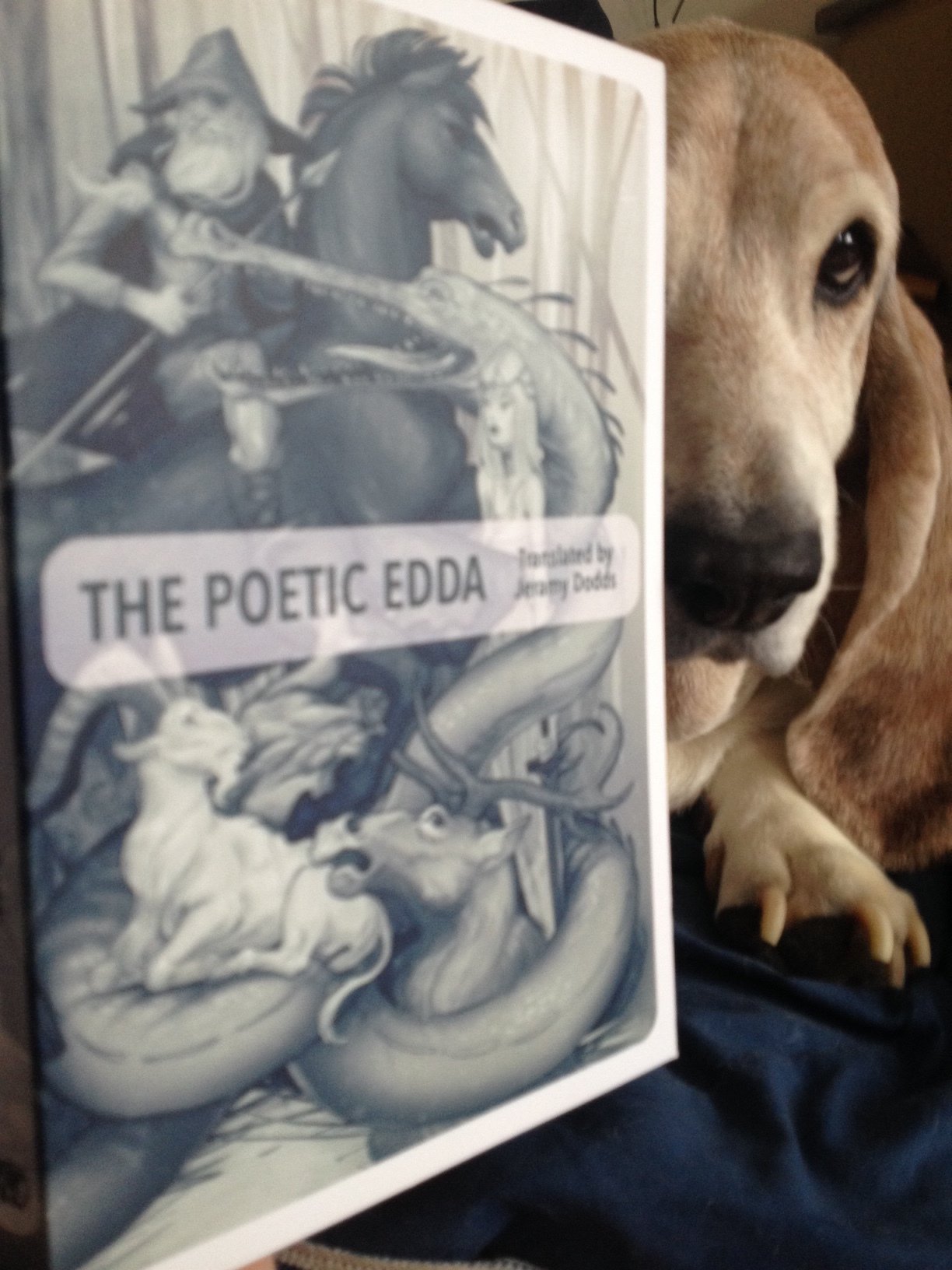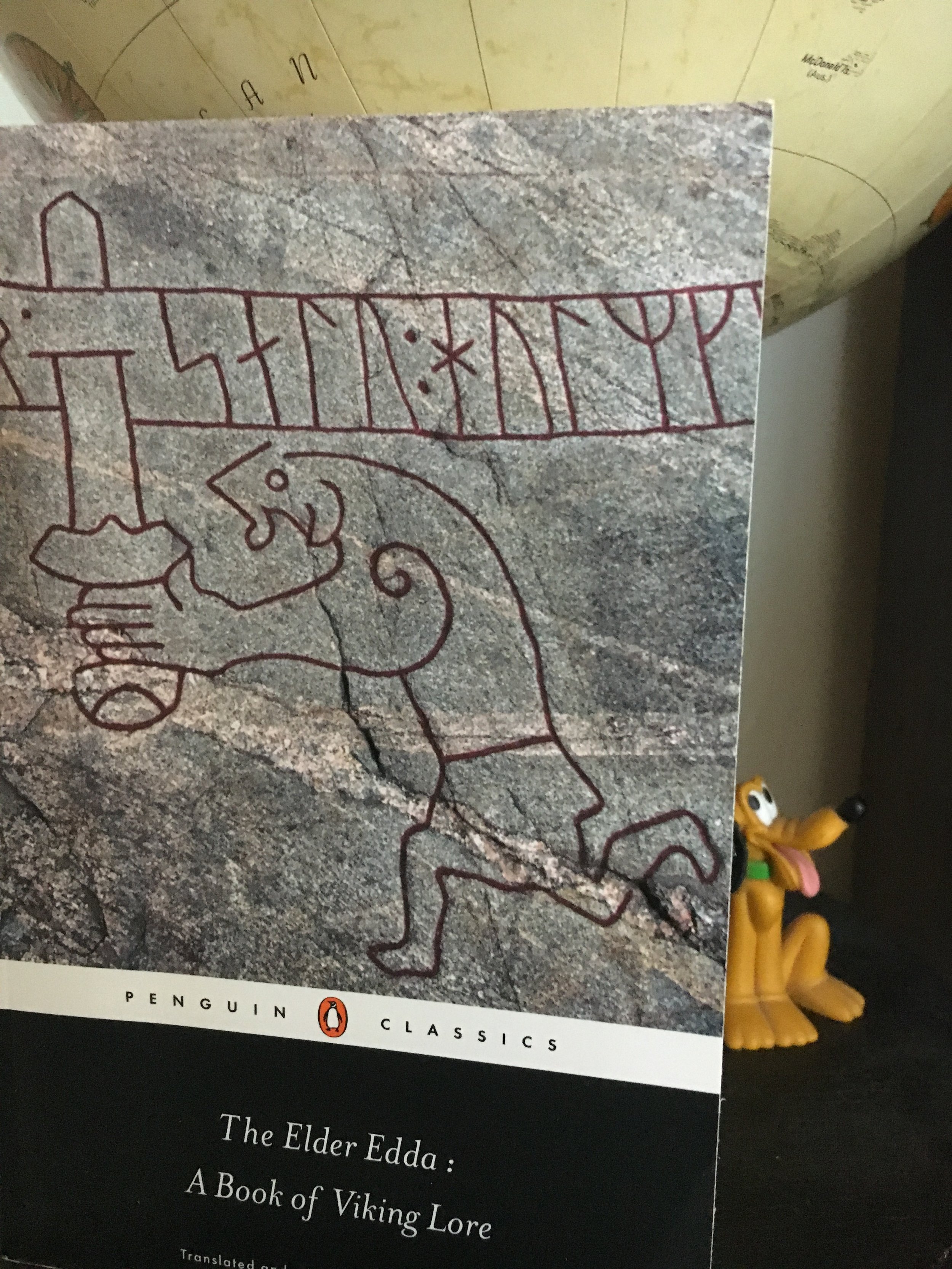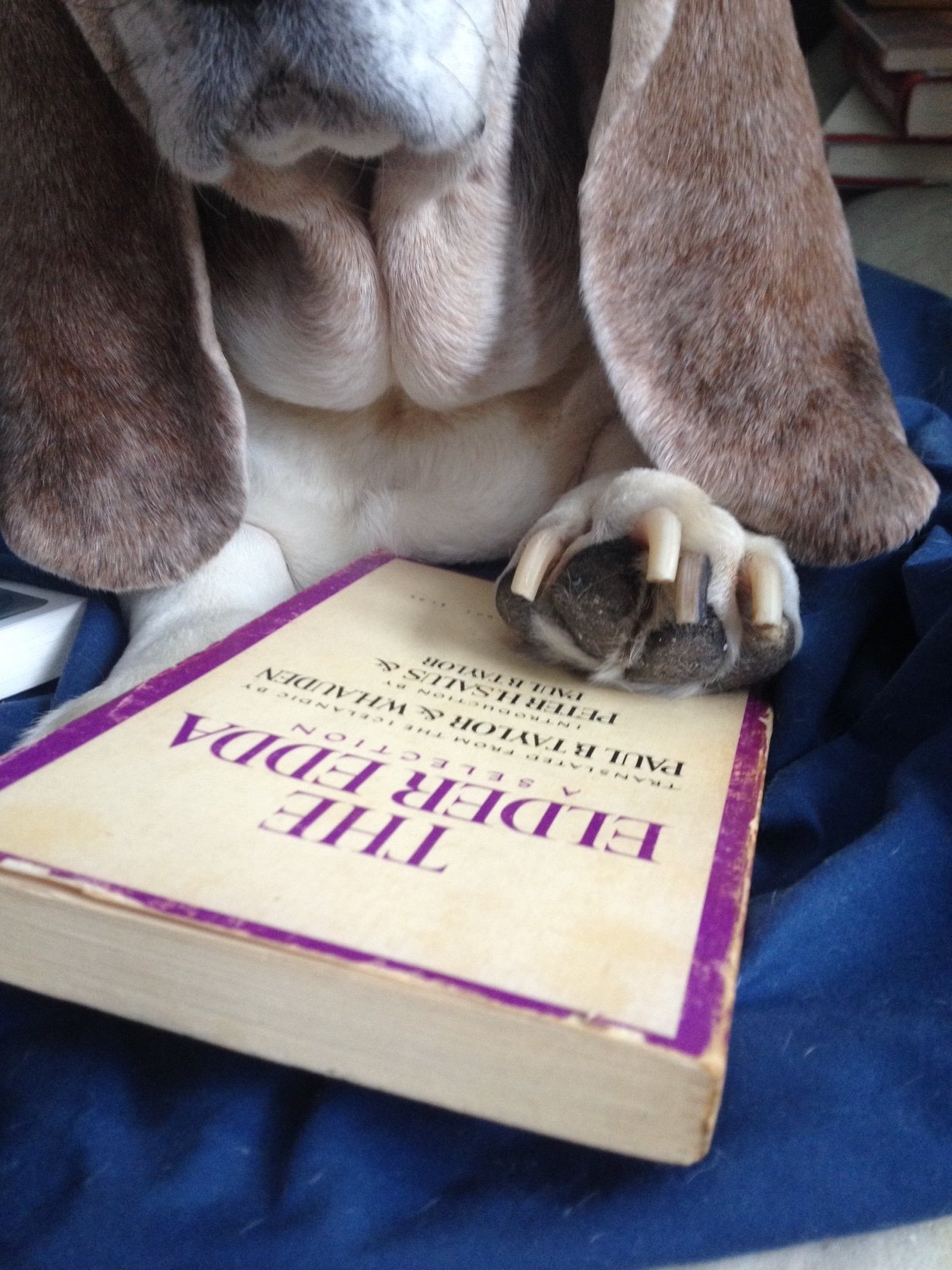Visions of the End!
/Our book today is one we turn to with some bitterness: The Poetic Edda, or Elder Edda, that medieval treasure-house of Norse mythology. After a week of fawningly propitiating a certain Deity Who shall remain nameless, and after having it amount to squat as a vicious “snow hurricane” struck poor, shivering Boston just the same, it dawned on me that I’d been attempting to appease a desert god, somebody Who’d probably never so much as seen snow in His entire life. It turned out that all the while, I was propitiating the celestial equivalent of a sunbathing Arizona retiree.
So now, as blinding white snow peppers the walls and windows of all around me and temperatures tremble on the edge of plunging off the scale, Stevereads swerves at last to propitiating the right crowd: the stern and bundled-up gods and goddesses of Norse mythology. These are gods who not only know all there is to know about ice and snow and cold but also fight it every day despite the fact that they know it’s a losing battle, that eventually their world will come to an end in Ragnarok, which will be preceded by the Fimbulwinter – which Boston is clearly experiencing as we speak. These are the Aesir and their supernatural cohorts, hardy creatures who know what it feels like to wake up cold in the morning.
Happily, last year the wonderful folks at Toronto’s Coach House Books produced a lovely paperback edition of a new translation of The Poetic Edda translated by poet Jeramy Dodds, who takes a wonderfully fresh approach to this oft-translated text and who, perhaps unfortunately, was allowed to write the Introduction to his own work. It’s got some rocky patches:
Like all translations, these are recreations that possess birthmark similarities, echoes, absolute similitudes and forgeries. They are re-enactors in period costume rehearsing a happening centuries after its origination. But the poems in the Poetic Edda have always been re-enactors: oral pagan poems, passed mouth to ear for centuries, until they were flash-frozen onto vellum sometime around 1270 by Christian monks in Iceland, centuries after they may have been known by heart. These poems are scored by elements of ancient Norther European lore, but a scribe who may or may not have understood them has refracted them through a distant lens. They were quilled in Old Icelandic, a variant of Old Norse. What you have here is a museum-guide replica of the original text, one made with the modern material of English.
Yes, yes, I saw it too: similitudes. And before you can even open your mouth, origination, and then “distant lens” … until you want to yank off his plaid ear-flap hat and shout at him to get to translating, bub. Fortunately, when he does get to translating, his genius jumps right out. He captures the clipped, no-nonsense nature of the Edda like no earlier translators, including the best-selling edition Vintage put out in 1970 under the title The Elder Edda: A Selection, with the translating being done by Paul Taylor and W. H. Auden (and touchingly dedicated to J. R. R. Tolkien). Here’s a brief snippet from one of the Edda stories in which Odin, the king of the Norse gods, engages in one of his favorite pastimes: donning a disguise and swapping trivia with some hapless sap he plans to murder. In this case the sap is Vafthrudnir, who shares some key prophecies about Ragnarok before he realizes he’s been duped:
By whom in the end shall Odin fall,
When the High Ones are all destroyed?
Fenris will swallow the Father of Men:
This will Vidar avenge,
Cleaving asunder the cold jaws
In the last fight with Fenris.
What did Odin whisper in the ears of his son
Before Baldur was borne to the pyre?
You alone know that, what long ago
You said in the ears of your son.
I doomed myself when I dared to tell
What fate befell the gods,
And staked my wit against the wit of Odin,
Ever the wisest of all.
It’s true that such passages have been polished to an appealing fluidity (and seeded with signature Auden-style buried half-rhymes), but to a very large extent, what a 21st-century audience considers ‘appealing fluidity’ would have been strange and perhaps even distasteful to the audiences who gathered in chilly halls to hear these epic pieces performed. Dodds’s translation – by sticking to that ‘museum-guide replica’ authenticity (and by actually denoting speaking parts, which Taylor and Auden don’t do) – captures far more of both the mean wit and above all the tension of the encounter:
Odin said:
‘I’ve travelled a lot, I’ve tried
a lot, testing the Powers, but
how will Odin’s life leave him
once the Powers are slaughtered?’
Vafthrudnir said:
‘Fenrir will wolf down the Father of Men,
but Vidar will avenge him,
he’ll pry apart the wolf’s cold jaw
after he’s battled the beast.’
Odin said:
‘I’ve travelled a lot, I’ve tried
a lot, testing the Powers, but
what did Odin whisper in Baldr’s ear
before he was laid on his pyre?’
Vafthrudnir said:
‘No one knows what you whispered
into your son’s ear in those days long gone.
With my hexed mouth I told you
ancient lore and spoke of Ragnarok.
I’ve been waging my wits against Odin.
You’ve always been the wisest of all.’
That’s fine stuff, and this Coach House Poetic Edda offers a delightful 250 pages of it for readers who want a taste of a now-vanished world.
Vanished, that is, except for miserable, hunched, snow-buried Boston, now being battered by its sixth storm in 15 days (and with more snow in the week’s forecast). In Boston, the Fimbulwinter lives on, and so we turn the engine of Stevereads propitiation to Odin, who’s always been the wisest of all, and to burly Thor, his storm-herding son, and to all the other Aesir over the rainbow bridge in their shining city: don’t bury us completely from the sight of the world. We’ll repent. We’re sorry about our accent. We agree that we’ve probably overdone it with Dunkin Donuts. We’ll fix the T. We were only kidding about the Olympics. Please send the next four blizzards to New York City, which untouched by winter, rife with sin, and devoid of altars to bright Baldur.




